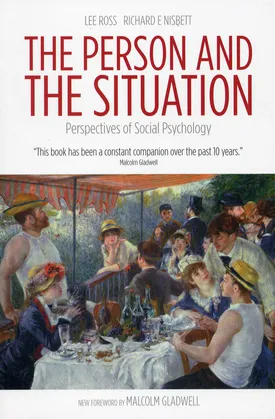Richard Nisbett
Richard Nisbett is an acclaimed American scientist, author, and professor of psychology. He is the Theodore M. Newcomb Distinguished University Professor at the University of Michigan and the author of several influential books, including The Geography of Thought and Intelligence and How to Get It.
Born in Louisville, Kentucky in 1941, Richard Nisbett was educated at Brown University where he undertook a Bachelor's degree in economics, followed by a master’s degree and a PhD in psychology. Nisbett is best known for pioneering two of the most influential psychological theories today: the Geography of Thought, which looks at how cultural influences shape the way people think, and intelligence and how to get it, which explores the correlations between intelligence, education and genetics.
Most recently, Nisbett published a book entitled Mindware: Tools for Smart Thinking, which offers practical advice for making smarter decisions in everyday life.
The Geography of Thought is considered Nisbett's most important work, as it is the first psychological theory to talk about how culture influences mindsets. Nisbett argues that traditional Western thought, based on analytical principles and focused on seeing things in terms of individual components, can be found in many cultures, including Americans and Europeans. On the other hand, Asian thought centers around understanding how things are connected, and has a much more holistic approach.
Nisbett argues that Westerners are typically more focused on facts and important details, while Asians are more likely to look at interrelationships and the big picture. Westerners, for example, tend to focus on the cause-and-effect relationship of events, while Asians look at the patterns that can be found from the various components.
The second main concept addressed in Nisbett's book is intelligence and how to get it. Nisbett explains that some people do have a natural advantage in terms of intelligence, but he also argues that anyone can boost their IQ by focusing on the interrelationships between different aspects and by developing problem-solving skills.
Nisbett also provides practical advice on how to develop these skills, including looking at how different problems can be solved in different ways and seeing how different pieces of knowledge are connected. Additionally, Nisbett suggests ways to nurture these skills in children by exposing them to puzzles and problem-solving tasks.
Nisbett's work has had a major impact on psychological research and has been widely cited by other prominent scientists. His work has also been influential in politics, with a number of Asian countries adopting some of his theories and implementing them into their education systems. Culture, intelligence and how to get it, has been translated into several languages too.
Overall, Richard Nisbett's work is an essential contribution to the field of psychology, both in terms of theory and actual practises. He has opened up an opportunity for dialogue between different cultures and has shown that intelligence is something that can be developed, not something that is fixed. Nisbett's work is inspiring and will certainly continue to influence the field of psychology for many years to come.

